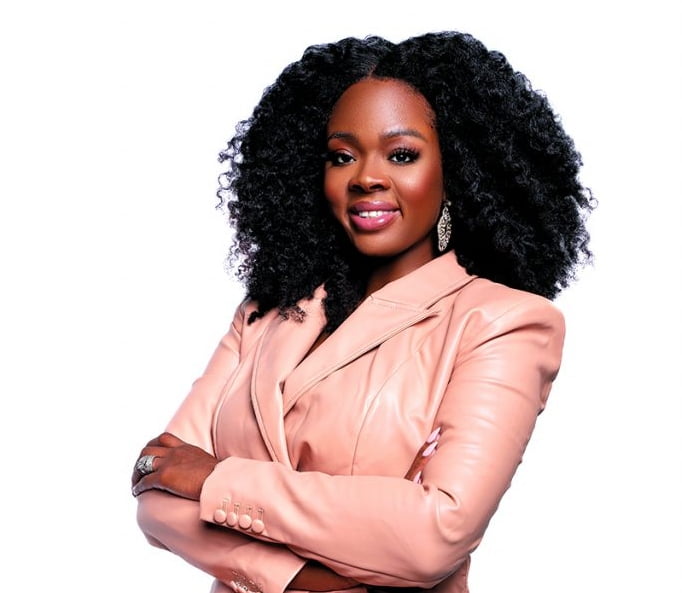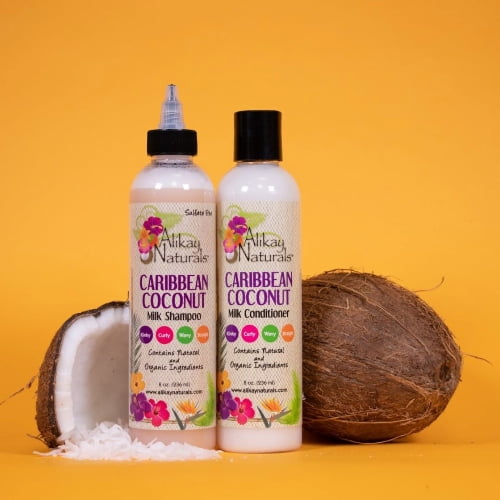
For some, business is just business—making a profit for profit’s sake. But a new generation of businesswomen across the Caribbean diaspora is paying it forward—building stronger companies as well as communities. We connected with two of these inspiring Caribbean-American woman entrepreneurs changing the game: beauty business maven Rochelle Graham-Campbell of Alikay Naturals, and media pioneer Wanda Tima-Gilles of L’Union Suite. These Caribbean businesswomen share the secrets to their success, the challenges along the way, and what it means to use your ancestry to create a legacy.
Natural Beauty: Rochelle Graham-Campbell

College is a time for personal transformation. In 2008, University of South Florida student Rochelle Graham-Campbell was going through hers. She had decided to leave relaxers behind and embrace her natural texture. Hair care after the “big chop” however, wasn’t pretty, with only mainstream products filled with harsh chemicals at her disposal. So she turned to her Jamaican roots, whipping up homemade aloe vera and avocado hair treatments inspired by her grandmother’s natural formulas.
These concoctions may have stayed a family secret if Rochelle hadn’t shared the goods on her YouTube channel, BlackOnyx77, which soon attracted millions of views and loyal followers begging her to sell her homemade blends. With just $100 in savings, the 22-year old launched hair-care venture, Ailkay Naturals. Now her company has grown into a multi-million dollar lifestyle brand, operating at a 7,000 square foot facility in Fort Myers, Florida, where they distribute their products around the country through Target, Walmart, Bed Bath & Beyond and more.
The products, like her popular lemongrass leave-in conditioner and shea butter hair moisturizer, are free from parabens, alcohol, silicone, petroleum and sulfates. She considers her products “a tropical escape for the mind, body and soul” that encourages hard-working women to embrace their natural beauty.

Recipe for Success
Rochelle attributes much of her Cinderella success story to harnessing the power of the web. “Social media has helped me build my brand essentially for free,” she explains. “I started my YouTube channel without the mindset of a business, building connections with a community. But I was able to leverage that community and capitalize on that audience by converting them into customers. That allowed my business to grow and get noticed by superstores like Target and Walmart.”
She advises budding entrepreneurs to nurture their social media presence into meaningful commerce. “You must have a strategy to keep your socials compelling. Think about what your audience needs and provide them with something of value.”
Rochelle regarded her venture seriously from the start. “As black people, we are operating in our areas of genius and passion, but are not getting paid for it. We’re providing a service for people, but are afraid to charge for it because ‘it’s just a hobby.’”
Instead, Rochelle encourages small business owners to not sell themselves short. “Take it seriously from the beginning,” she said. “Time is an asset and it’s not something that you should take lightly.” She enforces these principles in her new book 90 Days to CEO, providing tactical knowledge for budding entrepreneurs. She also launched Rochelle Graham Business University, a new online business course.

Teaching others to lead themselves became a foundational strategy when she established her own operations. “One of the biggest reasons people struggle with work-life balance is because they refuse to give up control or ask for help,” explains Rochelle about a common entrepreneurial pitfall. “They fear that no one will be able to do what they do when it comes to their business. If you can’t ask for help or teach someone else to do what you do, then you aren’t running a scalable business.”
This strategy has also helped Rochelle focus on what keeps her grounded—her family. “I set uncompromised time with my family. Period. No matter how demanding your business life gets, just remember that business without family is lonely, both physically and mentally. Don’t consider your family separate. Start thinking about how you can integrate them into your life.”
Cultural Connection: Wanda Tima-Gilles

Growing up in South Florida, Wanda Tima-Gilles was culture-starved when it came to her Haitian roots. When she was just a baby, she left the island of her birth with her family. Once stateside however, her Haitian parents forbade her from speaking Creole and visiting home. “My mom was only about lakay [home], lekol [school], and legliz [church],” shares Wanda about her upbringing. “I was a Haitian, but had no connections to my country. As a Haitian-American, I just wanted to know more.”
Seeking a deeper connection, Wanda began researching Haiti online. What she found, however, wasn’t inspiring, and didn’t truly feel reflective of the island’s rich culture. “I would only see things about how Haiti was filled with poverty and starving children,” she said. “There had to be more to Haiti than that.”
That unrelenting thought was the start of a passion project that would, in 2011, become L’Union Suite—a media company that highlights and celebrates the Haitian diaspora throughout the world. Starting out as a humble blog, L’union Suite is now the number one Haitian media platform with over 10 million visitors weekly. Her work for the community has led to features in Forbes, Black Enterprise, and the Miami Herald—transitioning her from a young girl who didn’t know anything about her roots, to a world-renowned expert on Haitian culture and issues.
Finding Your Voice

On the site, readers can tune into a witty and incisive podcast, discussing all things Haitian pop culture. They can also explore the latest news from Haiti and across the diaspora, and read exclusive interviews with Haitian luminaries.
L’Union Suite has now become an essential platform, featuring Haitian celebrities like NFL football players Pierre Garcon and Mackenzie Alexander, community leaders like digital media strategist Karen Civil, and business people like TV producer Mona Scott-Young.
Since the very beginning, the site has enjoyed the enthusiastic support of the community. “Once I started, more and more Haitians wanted to be recognized and featured on my blog, and wanted me to cover events.”
Money Moves
Making the transition to full-time entrepreneurship, however, was a labor of love. She was taking classes online and traveling to Haiti on the weekends—all while working a 40-hour week.

“I was exhausted,” Wanda confesses. “It was just me traveling with all these cameras on my back and a bunch of apps. It was like 10 people were working for me.”
After she had saved up six months worth of expenses, she felt ready to quit her job and dive all the way into L’Union Suite. She still felt apprehensive, however. “I was like God, you need to give me a sign,” recalls Wanda. And he did. The day after I quit, the Obama White House administration called me to cover an event for Caribbean Heritage Month. That’s all I needed.”
Behind all the hard work and sacrifices, she hopes sharing the stories of Haitians around the world will inspire more people of Haitian descent to leave a legacy. “I want to encourage people to know that they can do anything they want to do,” shares Wanda to those dreaming of launching their own ventures. “Don’t overthink it. If there is a missing piece, link it, and remember: prayer, passion, and purpose.”































